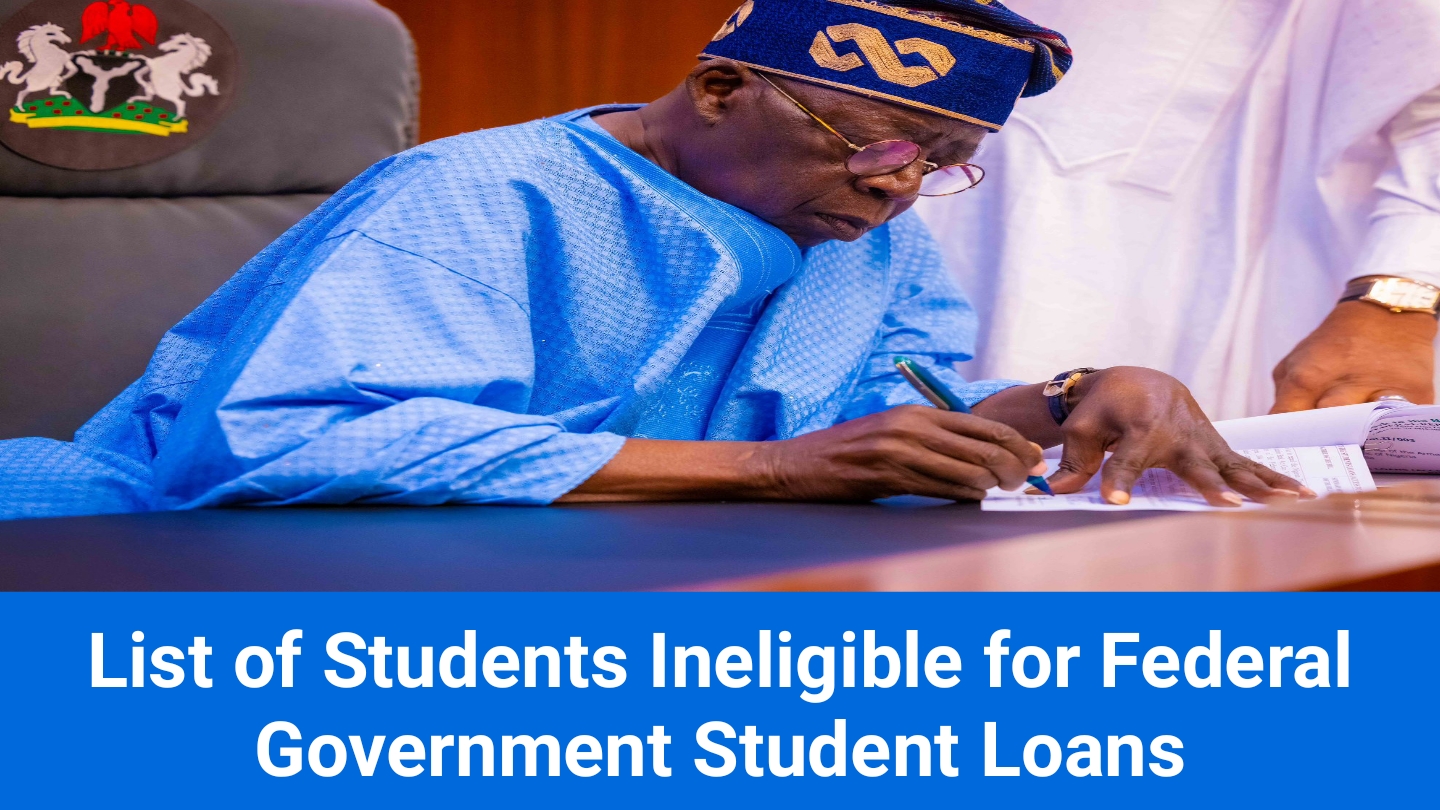
List of Students Ineligible for Federal Government Student Loans
List of Students Ineligible for Federal Government Student Loans
Detailed Information About The Federal Government's Loans To Nigerian Students
The President of Nigeria, Asiwaju Bola Ahmed Tinubu, has implemented a new policy to provide interest-free loans to Nigerian students in high schools who come from low-income families. The following are the key details and requirements for obtaining these loans:
1. Qualification: Before being eligible for the loan, students must secure admission to a state or federal high school, which can include universities, colleges of science and technology, colleges of education, or vocational schools.
2. Loan Purpose: The loan is specifically intended to cover school fees.
3. Income Criteria: The annual income of the student or their parents must be less than 500 thousand naira.
4. Sponsorship: The student must provide sponsors who are government employees with at least 12 years of service. Alternatively, a student can introduce a lawyer with a minimum of 10 years of experience or another legal worker.
5. Non-Government Schools: Students attending non-government schools are not eligible for this loan.
6. Non-Discrimination: The loan program does not discriminate based on gender, religion, or any other disability.
List of Students Ineligible for Loans:
1. Previous Education Bank Borrowers: Students who have borrowed from the Education Bank in the past and failed to repay the loan.
2. Guilty of Dishonesty or Fraud: Students who have been found guilty of dishonesty or fraud by any school or court.
3. Drug-Related Offenses: Students who have been arrested for drug-related crimes.
4. Parental Loan Repayment: If a student's parents have not repaid a loan previously granted to them for the student's education.
Repayment Process:
The Education Bank is responsible for monitoring loan recipients and ensuring timely repayment. The following are the repayment terms:
1. Loan Repayment Start: Loan repayment begins two years after the completion of the National Service (NYSC).
2. Salary Deduction: If employed, 8-10 percent of the student's salary will be deducted and deposited into the loan account.
3. Self-Employed Individuals: If self-employed, 10 percent of the monthly profit should be paid directly to the bank. Sixty days after becoming self-employed, the student must provide information about their business or work, including bank details, residential address, business partners, shareholders, and other relevant information.
Legal Consequences:
Failure to repay the loan can result in the following penalties:
- Imprisonment: A potential sentence of two years in prison.
- Fine: A fine of 500 thousand naira.
- Combination: A combination of imprisonment and a fine.
Laws Governing the Loan Program:
1. Establishment of the Education Bank: The Education Bank of Nigeria will be established to oversee and implement the provision of education loans.
2. Loan Application Process: Students can apply for the loan through their schools, which will forward the applications.
3. Eligibility Assessment: Each student's eligibility for the loan will be assessed.
4. Exclusions: The loan program does not apply to students studying outside of Nigeria or attending non-government schools.


ASIS Trandin company
ReplyDelete